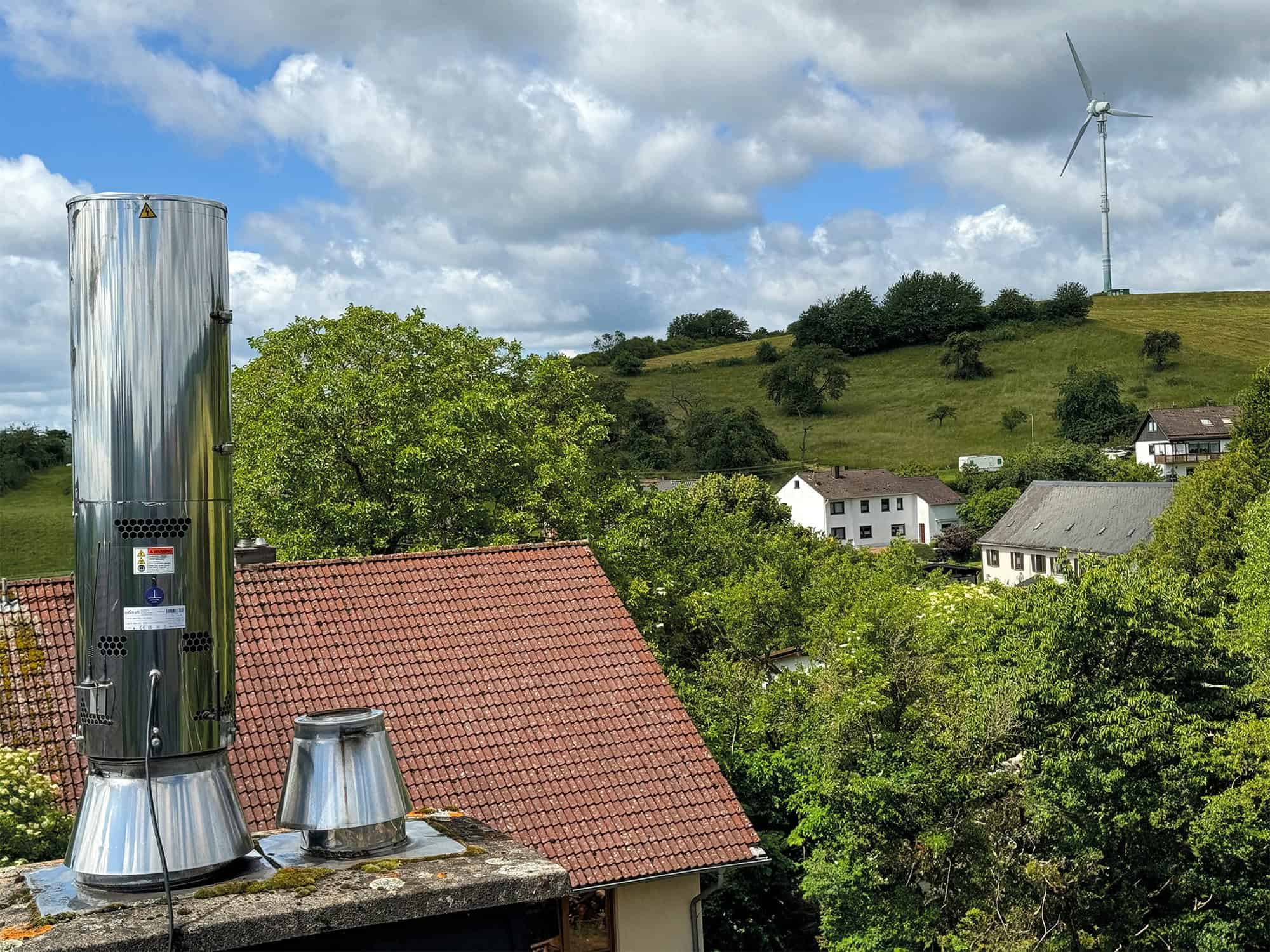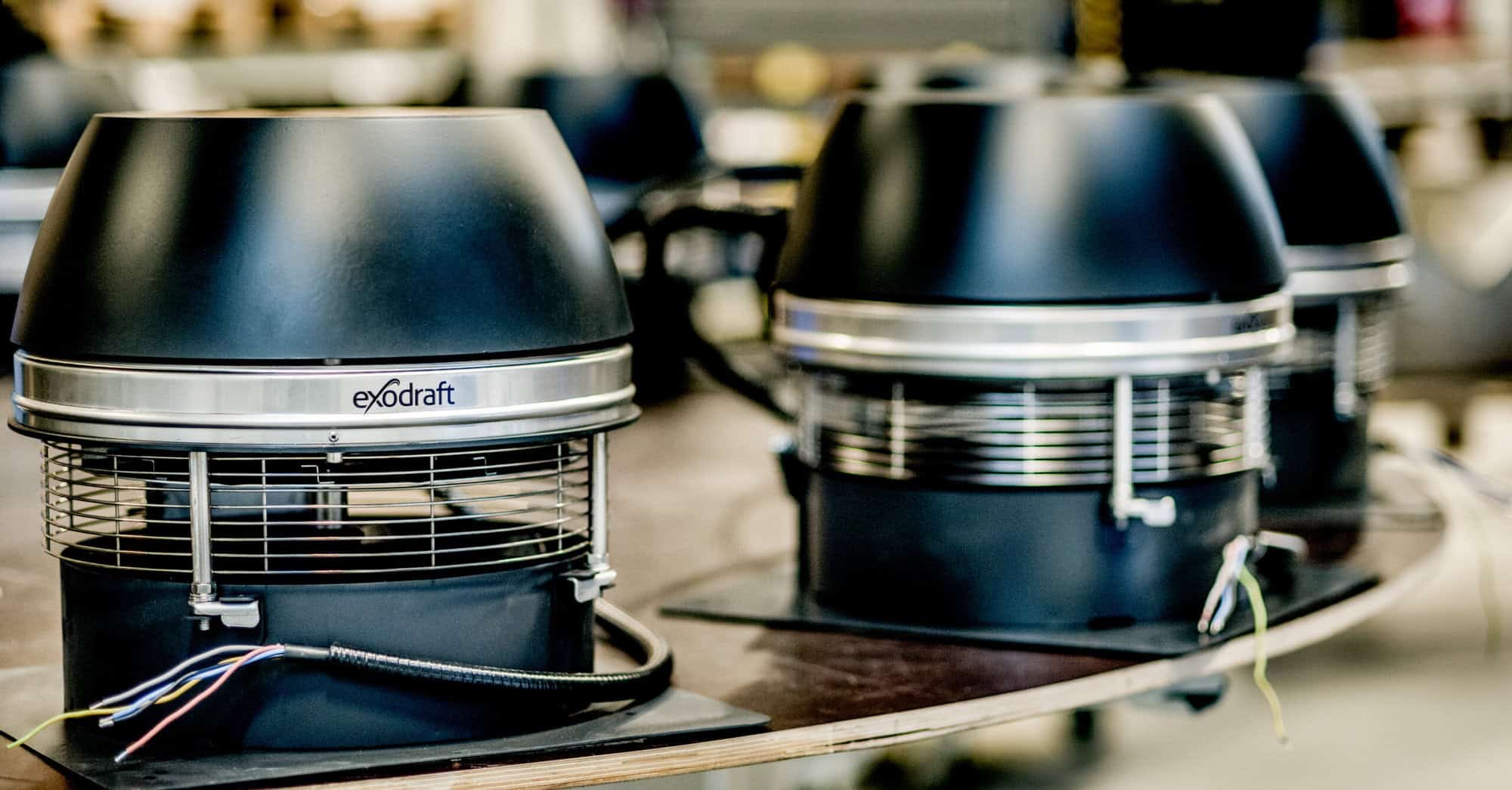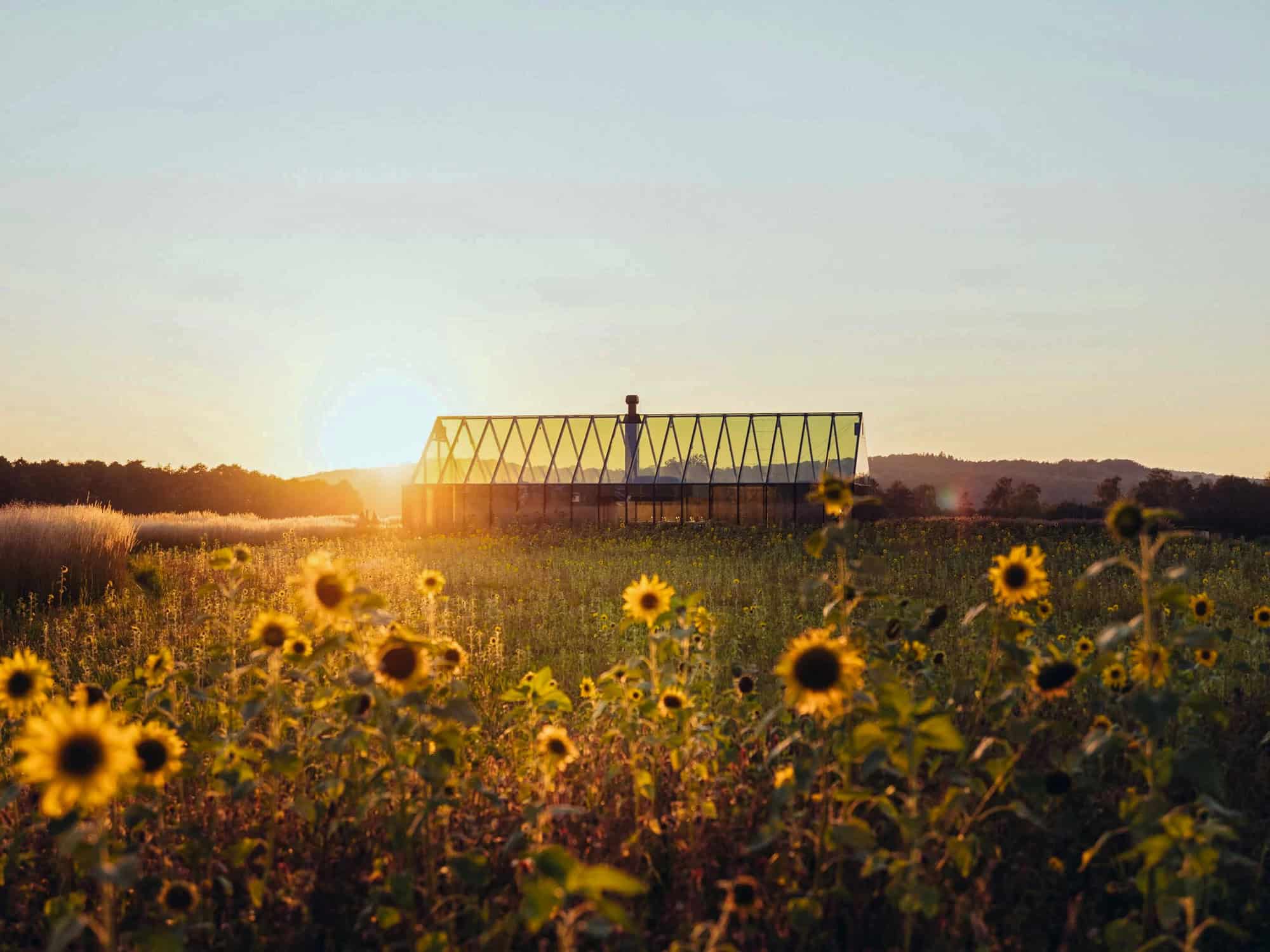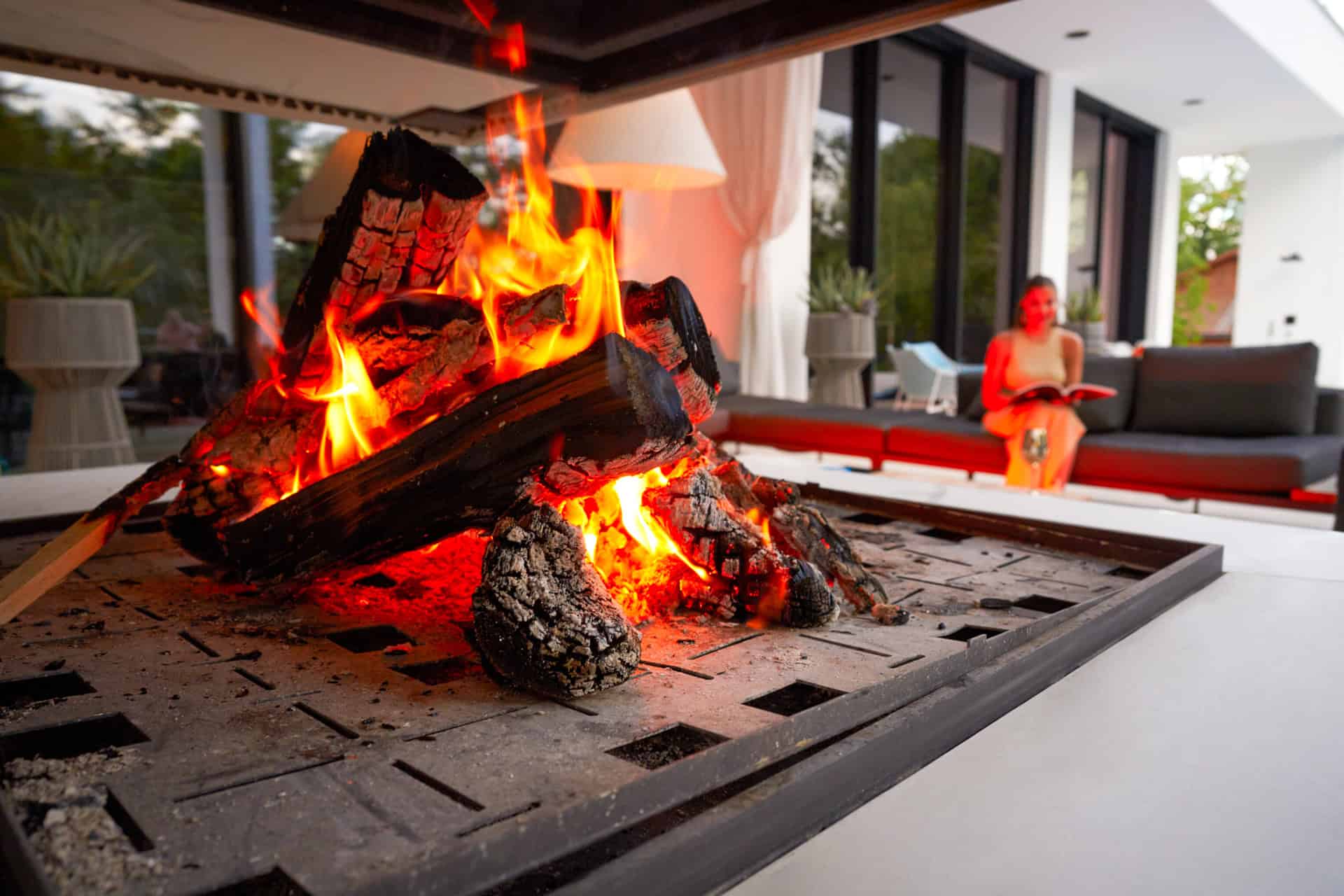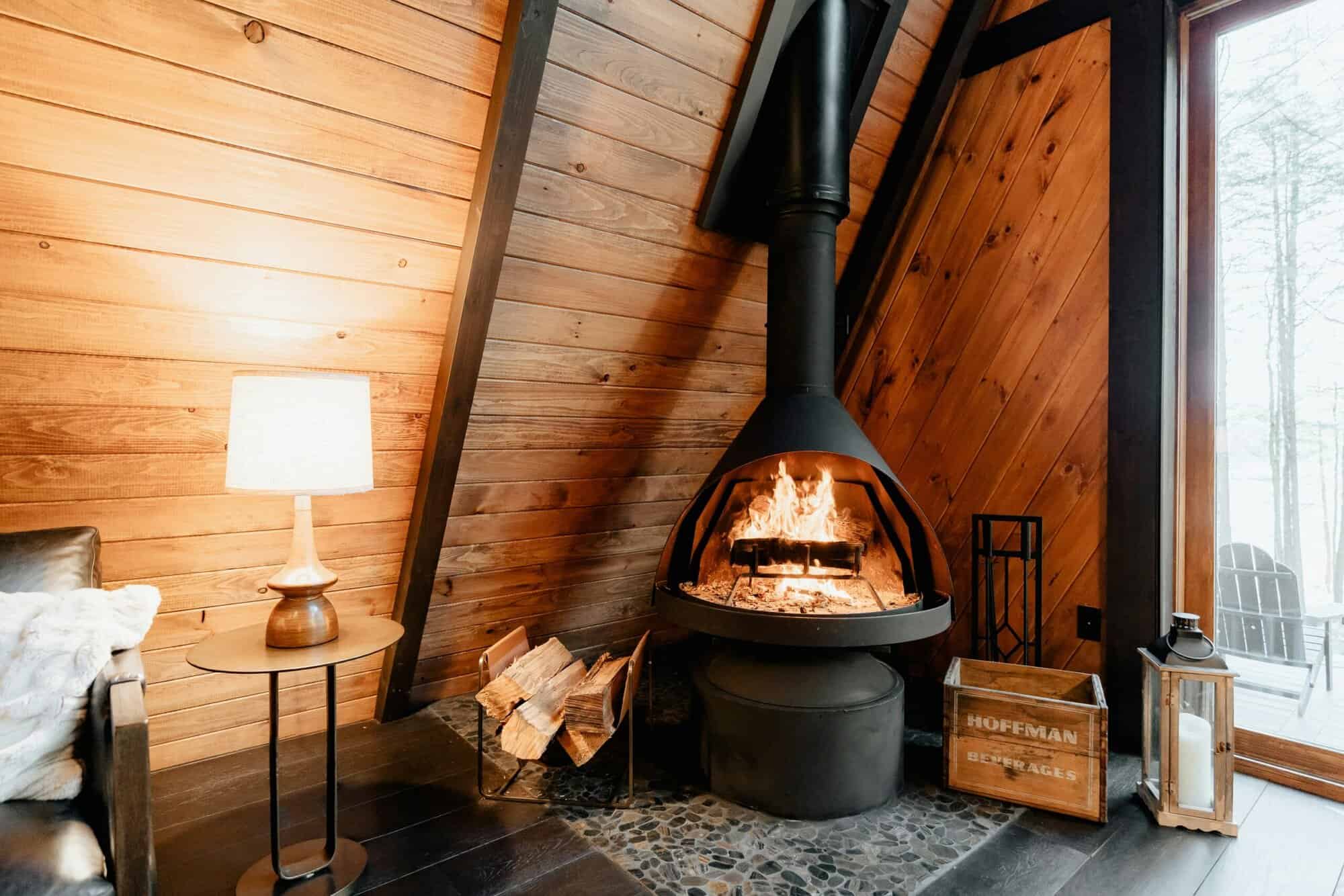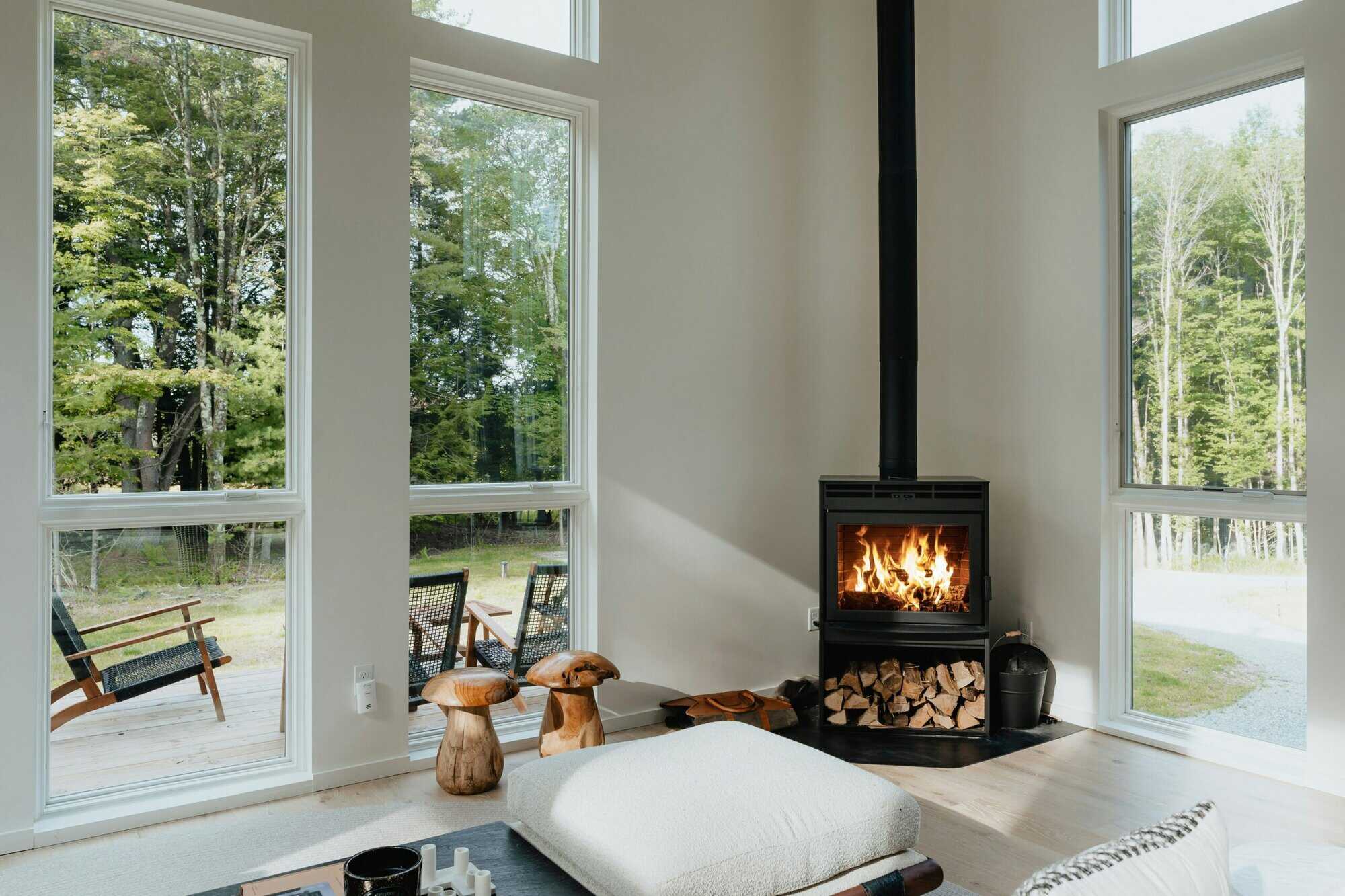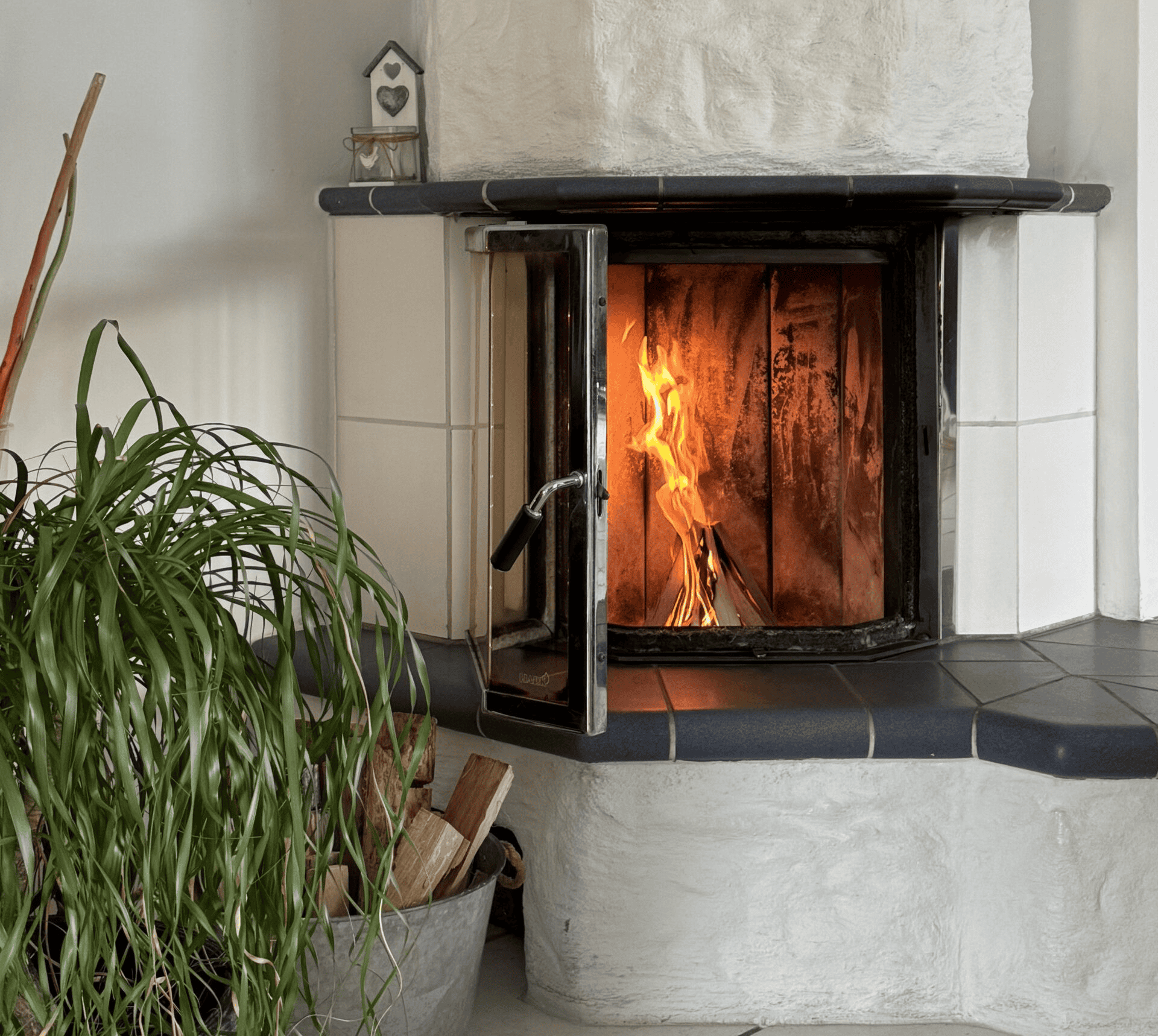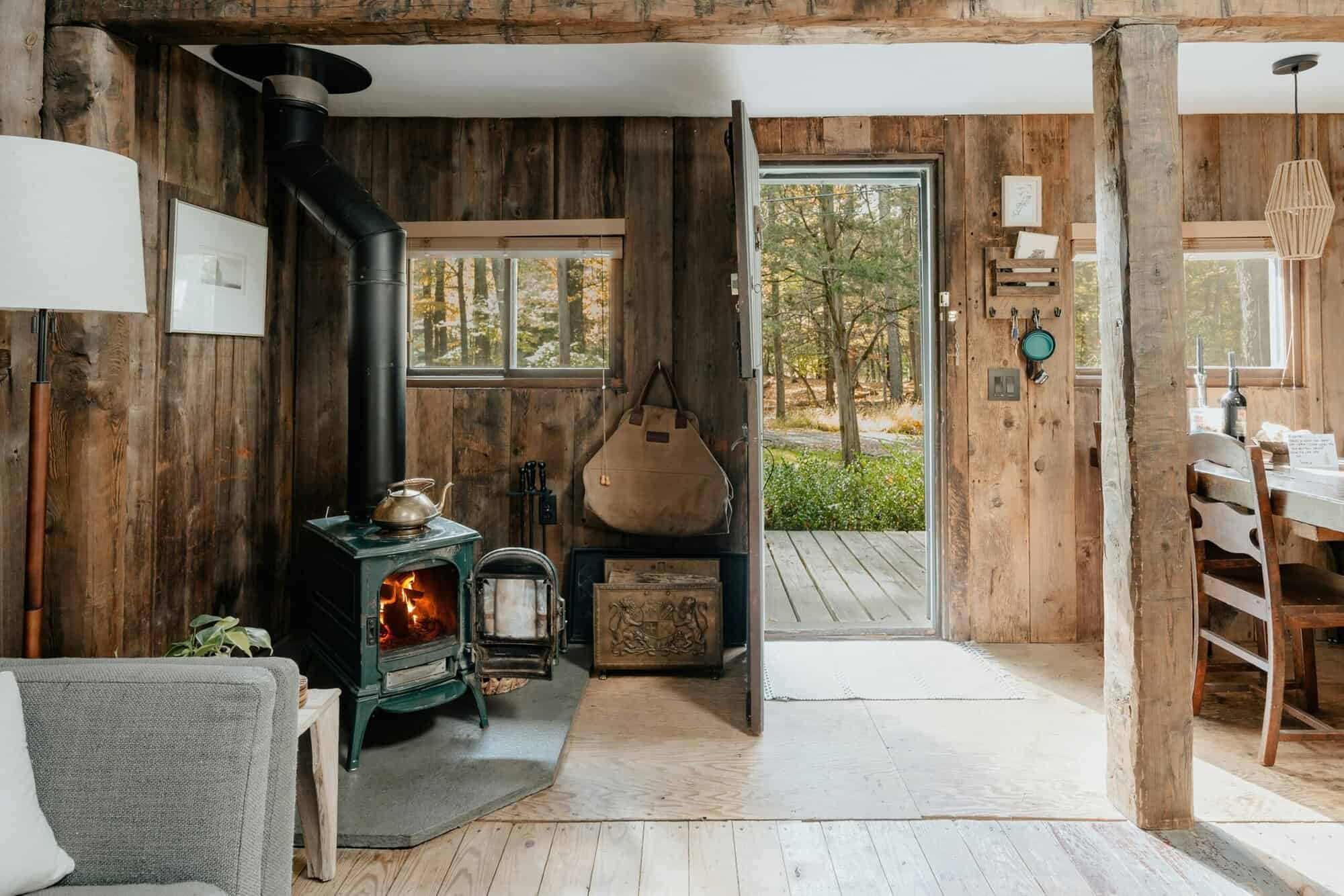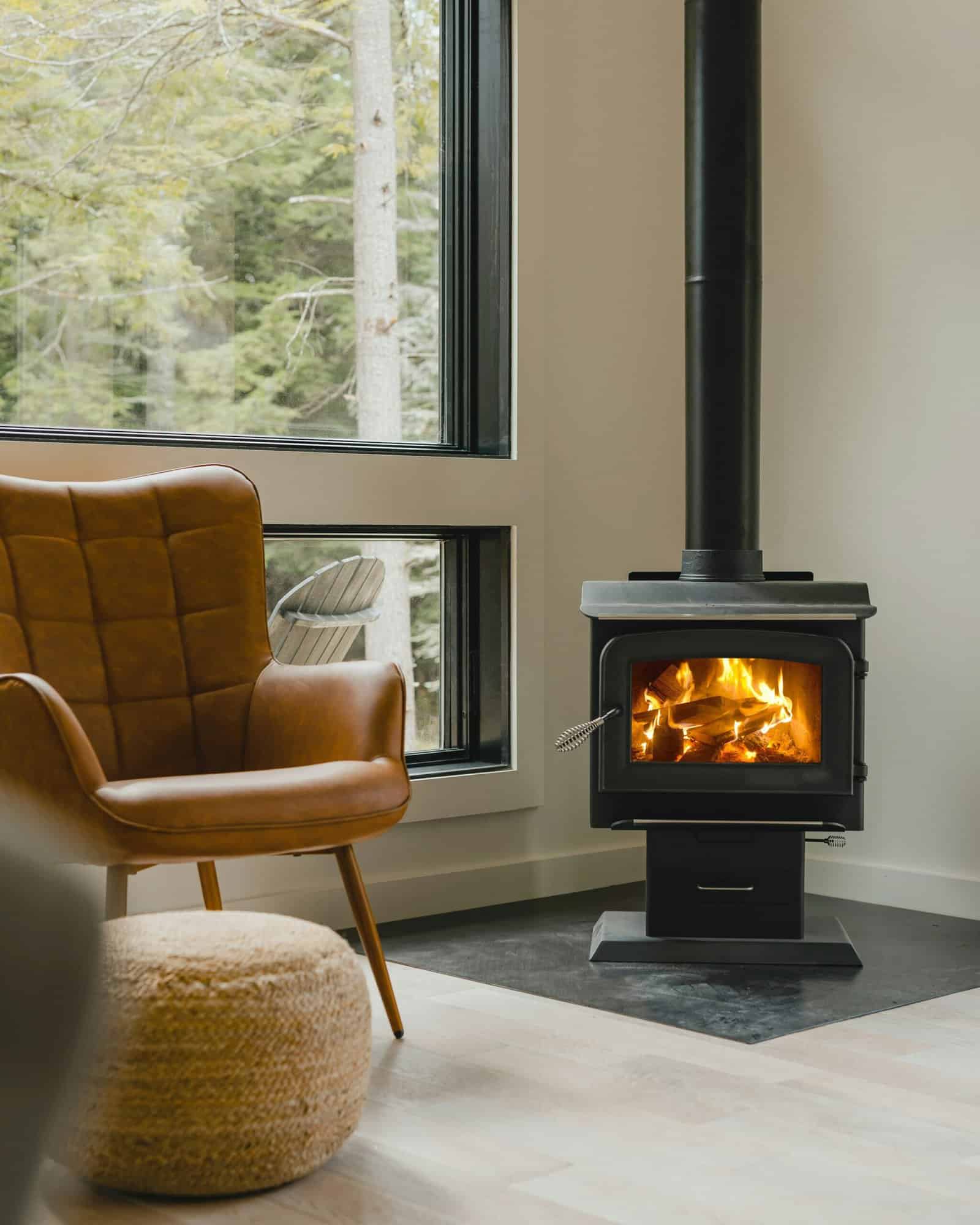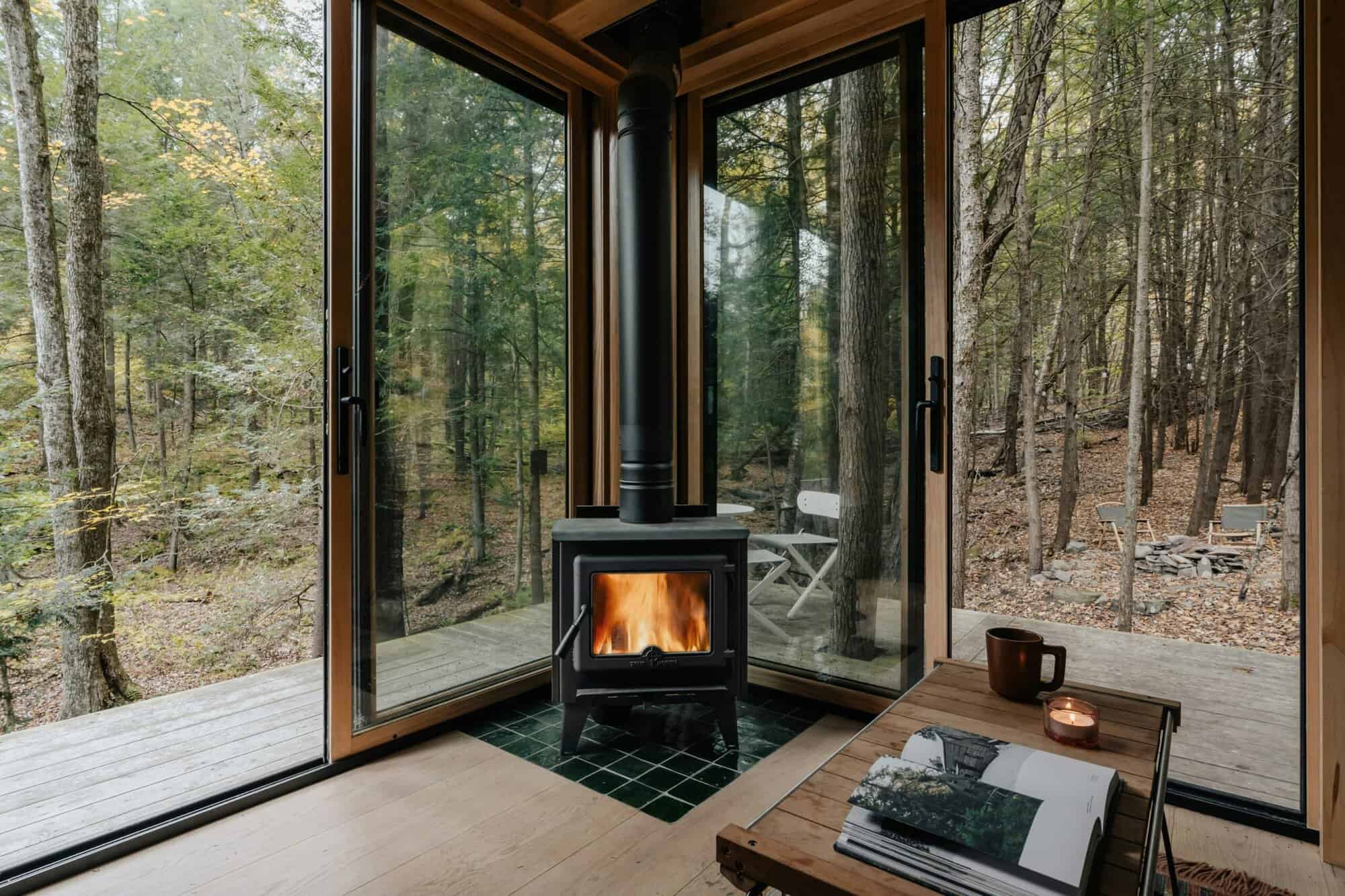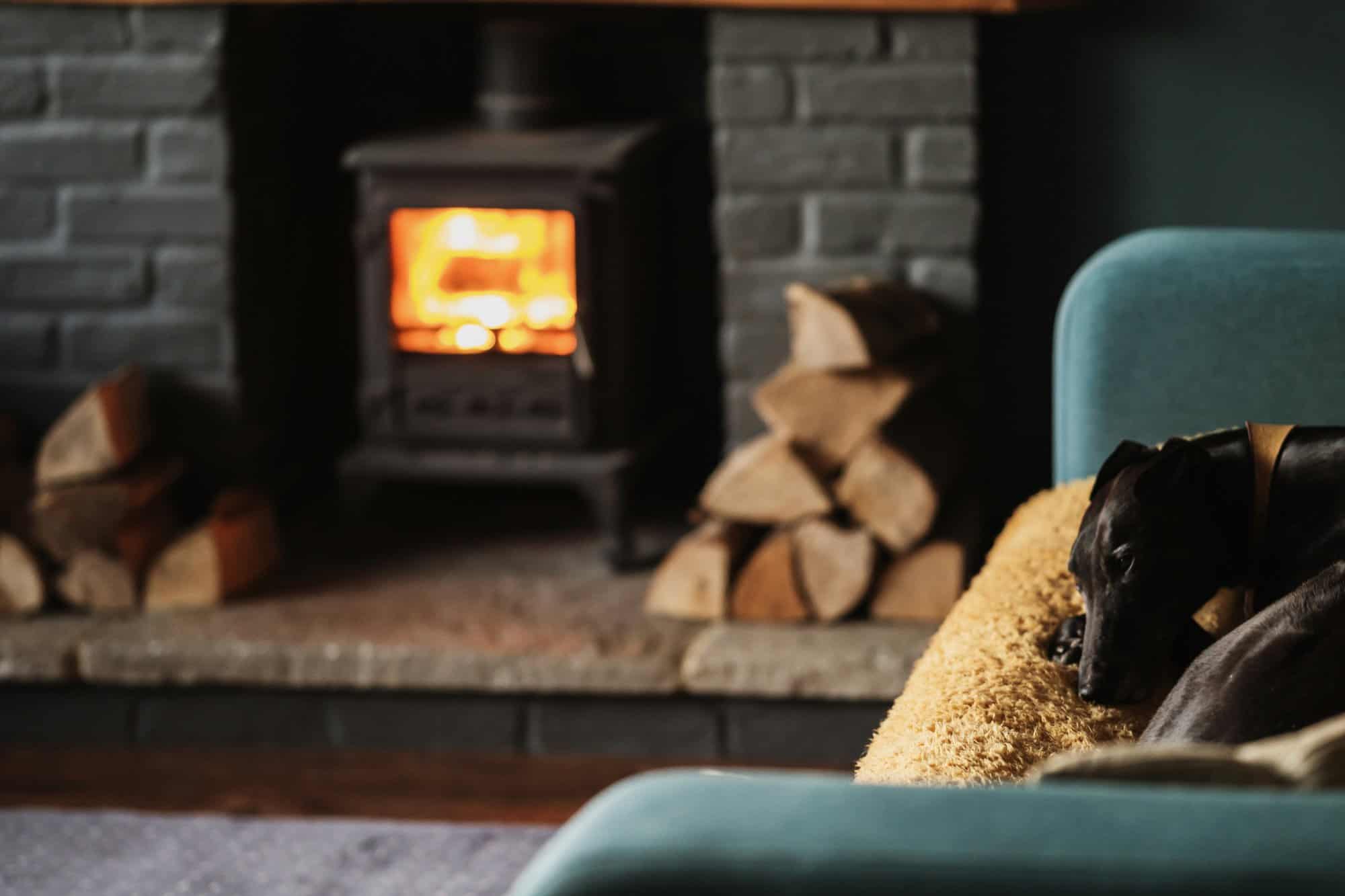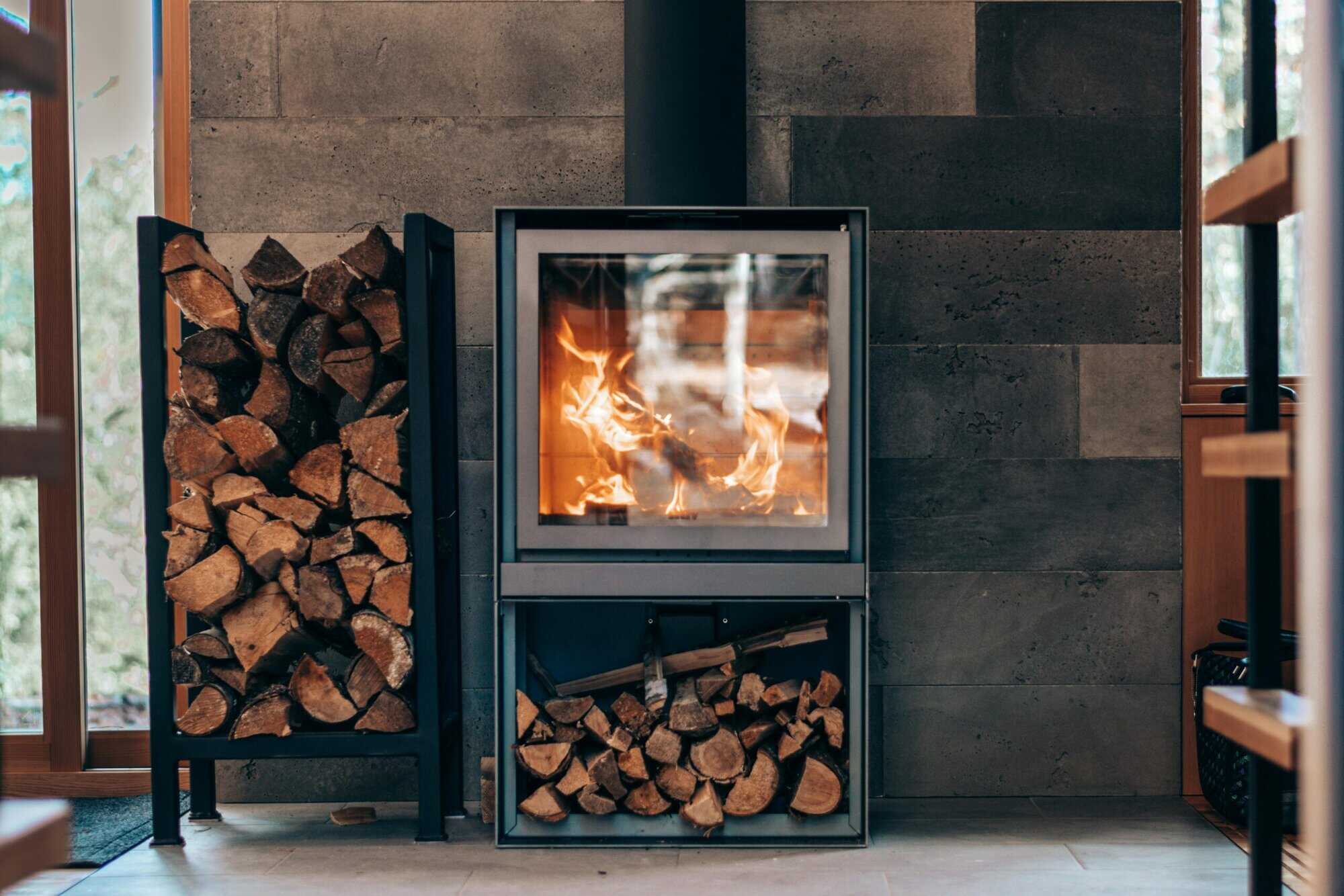Article
26. juni 2025 · 6 min
What Are the New Rules for Wood Burning Stoves in the UK?
Curious about new UK regulations for wood-burning stoves? Learn how Ecodesign 2022 and Smoke Control Area rules affect stove owners—and how to stay compliant with filters, DEFRA-approved models, and chimney upgrades.
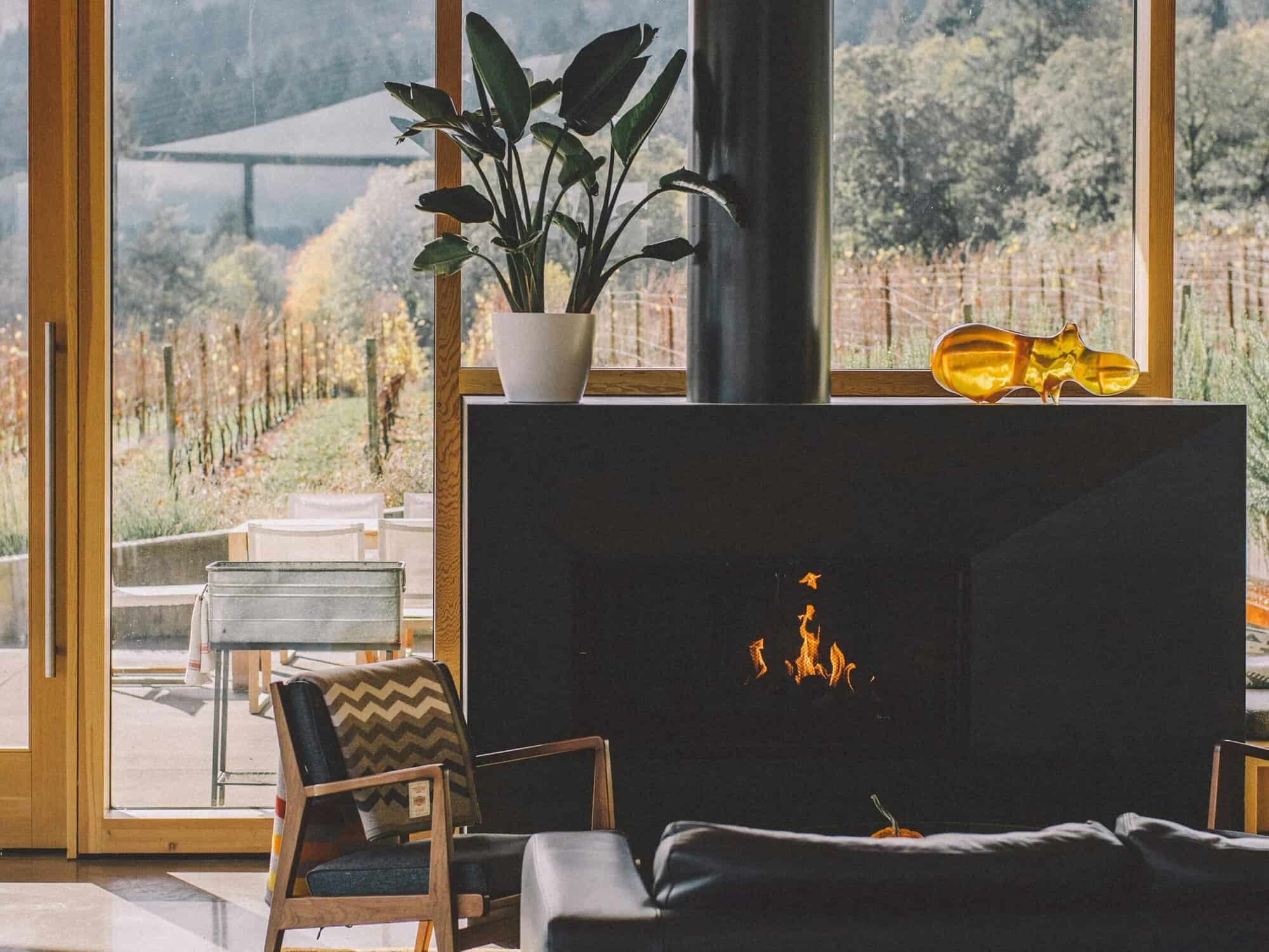
The UK government has introduced stricter environmental regulations for wood-burning stoves to reduce air pollution and improve air quality. These new rules mainly focus on emission limits, efficiency standards, and fuel restrictions, ensuring that wood burners meet modern environmental requirements.
The key legislation that impacts wood burner owners includes:
- Ecodesign 2022 standards – As of January 2022, all new wood-burning stoves must comply with tighter emissions and efficiency standards. These rules apply to newly manufactured stoves but do not affect existing ones.
- Smoke Control Areas – Many UK cities and towns have designated Smoke Control Areas, where only DEFRA-approved stoves and authorised fuels are permitted. Using a non-compliant stove or fuel in these areas can result in fines of up to £1,000.
- Stricter enforcement of emissions – Authorities are increasing monitoring and enforcement of particulate emissions, meaning homeowners must take extra care to ensure their stoves operate efficiently and within legal limits.
While wood-burning stoves are still legal, the UK’s commitment to reducing PM2.5 pollution means that further restrictions could be introduced in the coming years. For homeowners, this highlights the importance of future-proofing their wood burner to stay compliant with evolving regulations.
Understanding Ecodesign 2022 and Smoke Control Areas
The two most important regulations affecting wood-burning stove owners in the UK are Ecodesign 2022 and Smoke Control Areas. These rules set clear limits on emissions and dictate what types of stoves and fuels can be legally used.
Ecodesign 2022: Stricter Emission Standards for New Stoves
Since January 1, 2022, all newly manufactured wood burners must comply with Ecodesign regulations, which introduce tighter limits on particulate emissions, carbon monoxide, nitrogen oxides, and efficiency levels.
The key requirements of Ecodesign 2022 include:
- A 55% reduction in fine particulate matter (PM) compared to older stoves.
- Improved efficiency levels—all stoves must be at least 75% efficient.
- A ban on manufacturing and selling non-compliant stoves (except in special cases).
These rules apply only to new stoves, meaning that existing stoves can still be used. However, as air quality regulations tighten, it is expected that older, high-emission stoves will eventually face further restrictions.
Smoke Control Areas: Where Additional Rules Apply
Many urban areas in the UK are designated as Smoke Control Areas, meaning:
- Only DEFRA-approved stoves can be used legally.
- Only authorised fuels are permitted—wet wood and house coal are banned.
- If excessive smoke is produced, local authorities can issue fines of up to £1,000.
In these areas, it is crucial to ensure that your stove is properly maintained, fuel-efficient, and equipped with emission-reducing technology to avoid penalties.
For homeowners concerned about future regulations, adding emission-reduction technology, such as an Exodraft particle filter, can help ensure long-term compliance while maintaining a sustainable heating source.
How Do New Emission Standards Impact Wood Burner Owners?
The introduction of Ecodesign 2022 standards and stricter Smoke Control Area enforcement has several consequences for wood burner owners, particularly regarding legal compliance, environmental responsibility, and heating efficiency.
Impact on New Wood Burner Installations
Homeowners who purchase a new wood-burning stove must ensure that it is Ecodesign-compliant. This means that:
- Only low-emission, high-efficiency stoves can be legally sold and installed.
- Retailers are no longer allowed to sell older, high-polluting stove models.
- Homeowners must ensure that their chimney and ventilation system support clean combustion.
Impact on Existing Wood Burner Owners
For those who already own a wood burner, the rules do not currently require them to replace their stove. However, new restrictions mean that:
- More monitoring and enforcement could result in fines for excessive smoke output.
- Older stoves, particularly non-DEFRA-approved models, may become subject to future restrictions.
- Homeowners may need to improve their stove’s efficiency and emissions control to avoid legal issues in the coming years.
Financial and Environmental Implications
With the government’s continued focus on reducing PM2.5 pollution, homeowners must take proactive steps to reduce emissions and improve efficiency. This can include:
- Upgrading to a DEFRA-approved stove.
- Ensuring proper ventilation and chimney draught, possibly with a chimney fan.
- Installing an Exodraft particle filter, which significantly reduces harmful emissions.
By adopting these measures, wood burner owners can future-proof their heating system, comply with existing and upcoming regulations, and contribute to a cleaner environment.
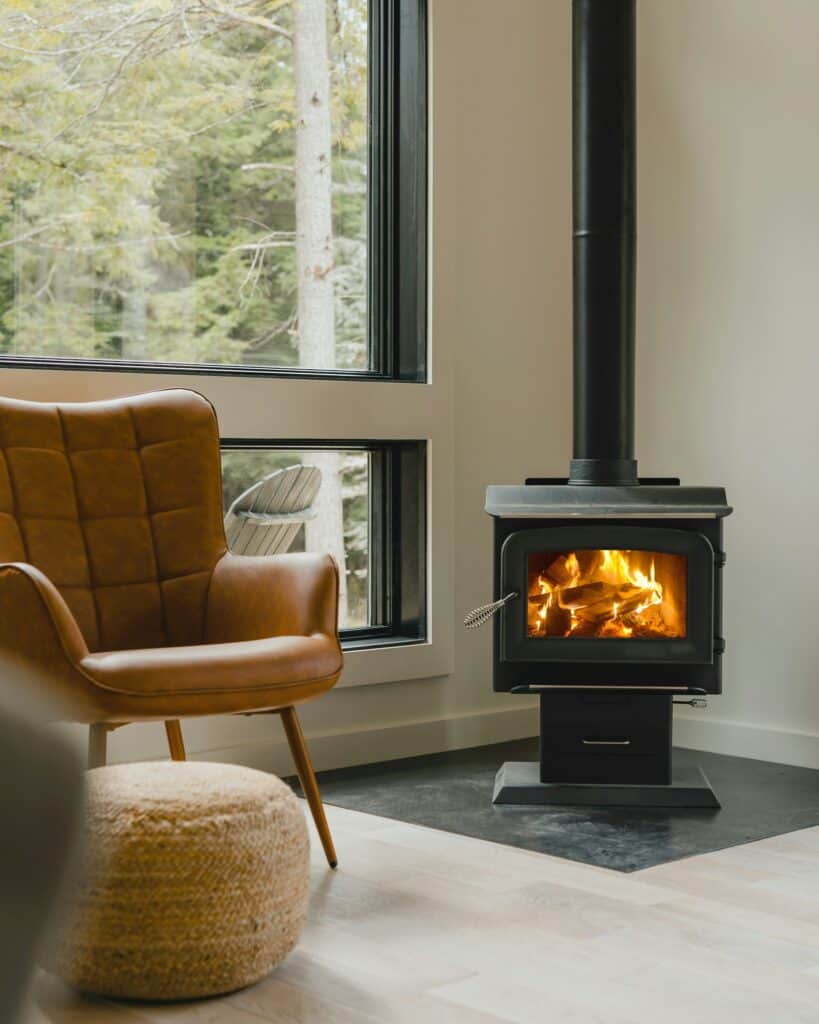
How to Future-Proof Your Wood Burner Against Stricter Regulations?
With emission regulations tightening, wood burner owners should consider long-term solutions to ensure compliance while maintaining an efficient and sustainable heating system. Future-proofing your stove means reducing emissions, improving efficiency, and ensuring that your setup meets both current and potential future standards.
Key Ways to Future-Proof Your Wood Burner:
- Ensure proper chimney ventilation – A chimney fan can improve draught, optimise combustion, and help prevent excessive smoke emissions, ensuring a cleaner and more efficient burn.
- Use only DEFRA-approved stoves and fuels – If you live in a Smoke Control Area, this is a legal requirement, but even outside these areas, using an approved stove and authorised fuels can help avoid future restrictions.
- Install a particle filter to reduce emissions – One of the most effective ways to meet strict PM2.5 pollution limits is to install an Exodraft ESP-10 particle filter. This system significantly reduces harmful emissions by capturing and neutralising up to 95% of fine and ultrafine particles from wood smoke. It also lowers total particulate mass by 70-75%, making it easier to comply with air quality regulations. With its integrated chimney fan, it ensures optimal draught and improves combustion efficiency, while its self-cleaning function minimises maintenance needs.
By implementing these solutions, wood burner owners can stay ahead of future legal changes, avoid fines, and continue to enjoy the benefits of their stove without harming air quality or facing restrictions.
Ensuring Compliance While Maintaining Efficiency
As environmental regulations continue to evolve, wood burner owners must take proactive steps to meet new emissions standards and prepare for potential future restrictions. While Ecodesign 2022 and Smoke Control Area regulations currently impact only new stove installations, increased enforcement and tighter air pollution limits could lead to further requirements in the coming years.
To continue using a wood burner legally and efficiently, homeowners should ensure that their stove is DEFRA-approved, burn only authorised fuels, and optimise their chimney system for clean combustion. Installing an Exodraft ESP-10 particle filter is a highly effective way to reduce emissions, meet current regulations, and future-proof against stricter air quality laws.
By adopting these measures, wood burner owners can enjoy the warmth and efficiency of their stove without legal concerns, while also contributing to improved air quality and sustainability.
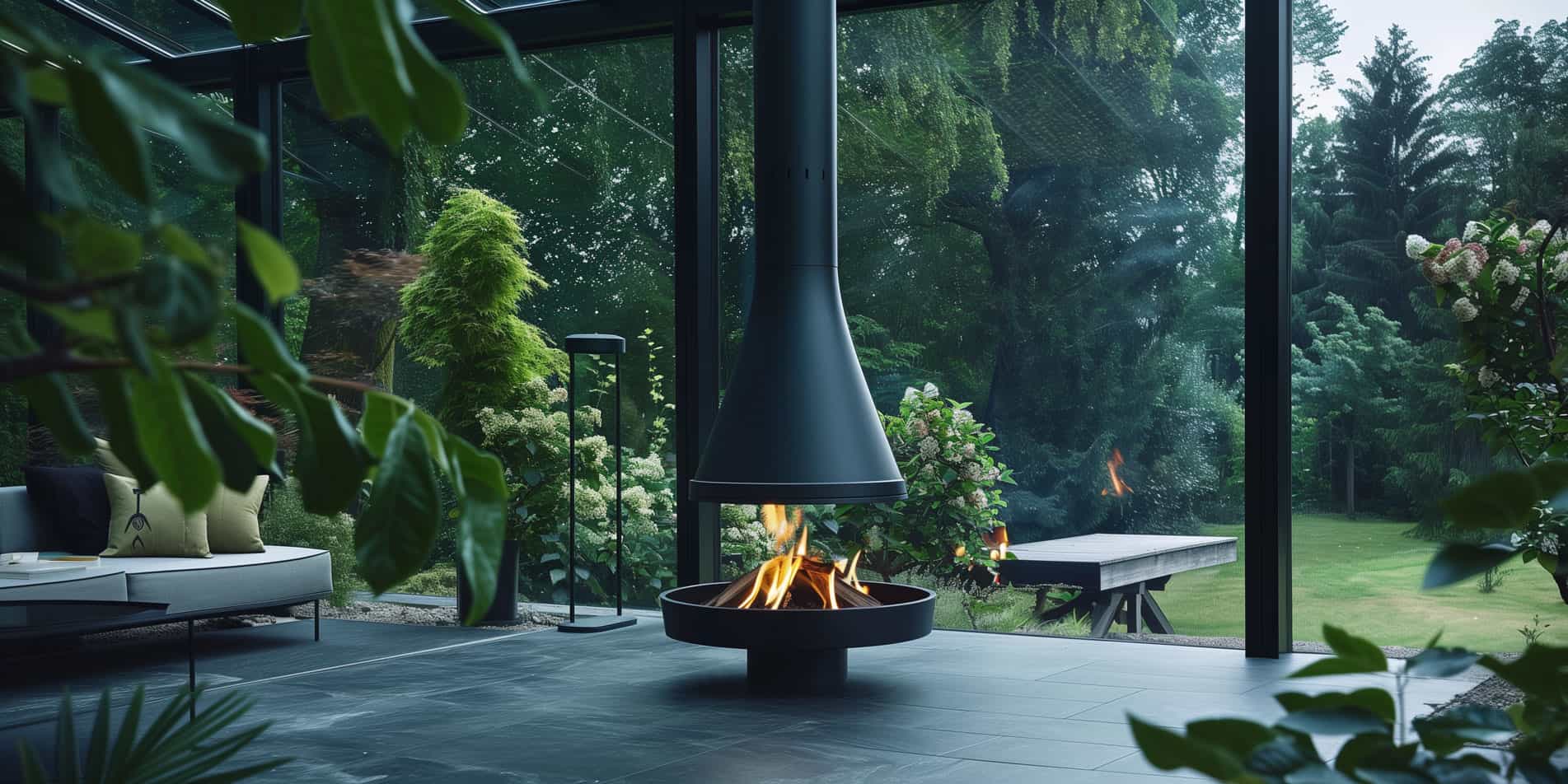
exodraft

